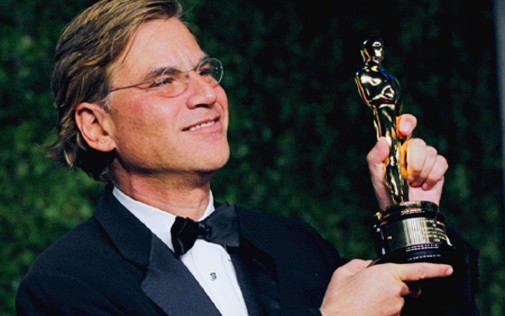
With The Trial of the Chicago 7 streaming on Netflix, one of the season's strongest awards contenders is now widely available. Even in times of pandemic and one of the weirdest Oscar races ever, it feels like a safe bet to rely on AMPAS to shower the movie with gold. The Academy is known to love an inspirational true story and Sorkin's sophomore directorial effort fits the bill. Some would argue it does this too emphatically, choosing formulaic drama over probing political critique and structuring the narrative around Tom Hayden's redemption to the detriment of the other historical figures.
Whatever faults the movie has, such matters are unlikely to undermine what already feels like a sterling awards narrative. This is a picture of political repression and revolutionary ideals that reflects and comments on our present time. Its themes are as urgent as ever. Furthermore, the Academy has long shown they are keen on Sorkin's brand of self-righteous garrulousness, and almost all of his movies have received Oscar nominations. With that in mind, let's reminisce about the filmography of Aaron Sorkin and its presence at the Academy Awards…
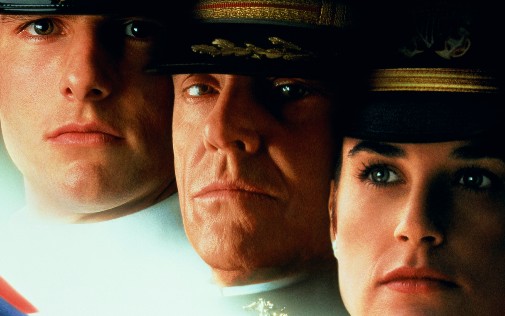
A FEW GOOD MEN (1992)
- BEST PICTURE, David Brown, Rob Reiner & Andrew Scheinman
- BEST SUPPORTING ACTOR, Jack Nicholson
- BEST EDITING, Robert Leighton
- BEST SOUND, Kevin O'Connell, Rick Kline & Robert Eber
Some screenwriters' careers start with a whimper and grow from humble beginnings. Others, start with a bang. Sorkin belongs to the second group, having achieved instant success with his first foray into moviemaking when he adapted his play, A Few Good Men, for the big screen. The military legal drama was a hit and Sorkin made a name for himself as a writer capable of rousing dialogue and potent words. It's bizarre that he didn't nab an Oscar nomination along with other members of the production team, but it's safe to say that, without Sorkin's famous portents about truth and what a novice lawyer can handle, Nicholson wouldn't have gotten this Best Supporting Actor nod.
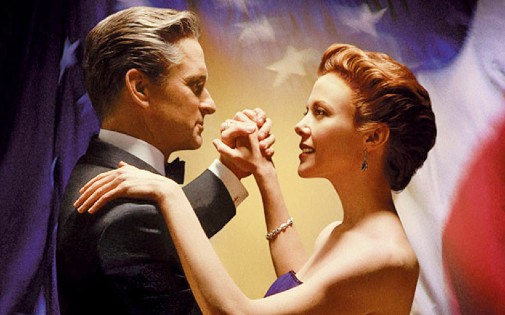
THE AMERICAN PRESIDENT (1995)
- BEST ORIGINAL MUSICAL OR COMEDY SCORE, Marc Shaiman
1993's Malice remains the only Aaron Sorkin movie to be completely rejected by the Oscars. 1995's The American President almost suffered the same fate, despite its plethora of precursor glory. The Golden Globes, for example, honored the romantic comedy with five nominations, including citations for Best Picture and Best Screenplay. In the end, AMPAS still recognized the movie's value in a "below the line" category. Marc Shaiman's glorious score was simply too good to be ignored.
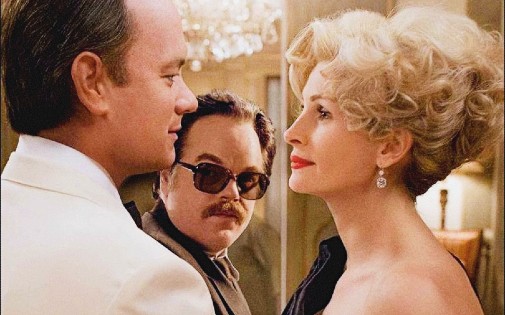
CHARLIE WILSON'S WAR (2007)
- BEST SUPPORTING ACTOR, Philip Seymour Hoffman
After The American President, Sorkin turned his attention from the big to the small screen, achieving great acclaim due to shows like The West Wing. His return to the world of cinema came in the late aughts when he delved, once more, into his favorite topic of American politics. Charlie Wilson's War is, in no shape or form, the finest hour of any of its creators, but it did make a dent on its awards season. As always, the Globes remained faithful to Sorkin, nominating the picture in five categories, and the Oscars singled out Hoffman's showboating performance of bureaucratic frustration.
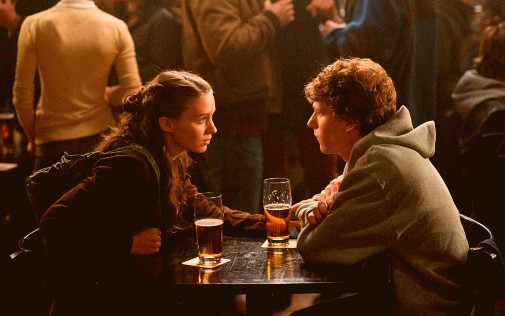
THE SOCIAL NETWORK (2010)
- BEST PICTURE, Scott Rudin, Dana Brunetti, Michael De Luca & Ceán Chaffin
- BEST DIRECTOR, David Fincher
- BEST ACTOR, Jesse Eisenberg
- BEST ADAPTED SCREENPLAY, Aaron Sorkin (winner)
- BEST EDITING, Kirk Baxter & Angus Wall (winner)
- BEST CINEMATOGRAPHY, Jeff Cronenweth
- BEST ORIGINAL SCORE, Trent Reznor & Atticus Ross (winner)
- BEST SOUND MIXING, Ren Klyce, David Parker, Michael Semanick & Mark Weingarten
By far, Sorkin's greatest picture is The Social Network, a cold biopic by way of legal procedural that examines the origins of Facebook and the character of its creator, Mark Zuckerberg. The movie was the favorite of the critics back in 2010, but Oscar voters rewarded The King's Speech with its highest honor. Still, Sorkin finally got a nomination and he won too, along with the film's editors and masterful composers. As much as I think that The Social Network's immaculate execution works tirelessly to counterbalance some of the script's miscalculations, Sorkin's victory wasn't undeserved. Just the opening duel of biting banter is enough to justify the little golden man.
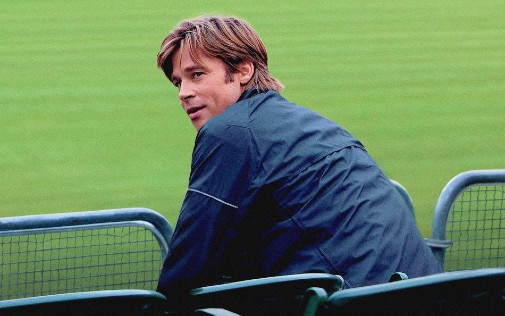
MONEYBALL (2011)
- BEST PICTURE, Michael De Luca, Rachael Horovitz & Brad Pitt
- BEST ACTOR, Brad Pitt
- BEST SUPPORTING ACTOR, Jonah Hill
- BEST ADAPTED SCREENPLAY, Steven Zaillian, Aaron Sorkin & Stan Chervin
- BEST EDITING, Christopher Tellefsen
- BEST SOUND MIXING, Deb Adair, Ron Bochar, David Giammarco & Ed Novick
Following the success of The Social Network, Aaron Sorkin scored another near-home run with AMPAS. Moneyball might have left the Oscars ceremony with no victory, but its bountiful nominations are their own reward. Some might quibble that Pitt deserved the Best Actor Oscar or that Sorkin should have won a back-to-back trophy, but the movie's mournful qualities speak for themselves. It's one of this writer's leanest works, grounded in character beats and denuded of needless bouts of sanctimonious wordiness.
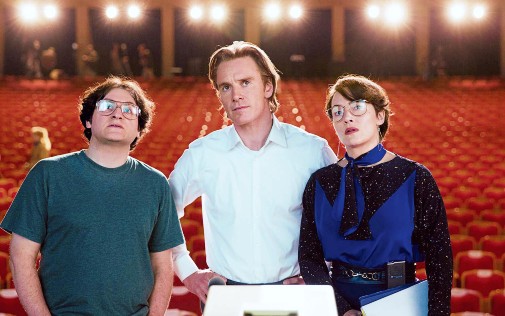
STEVE JOBS (2015)
- BEST ACTOR, Michael Fassbender
- BEST SUPPORTING ACTRESS, Kate Winslet
The lack of nomination for A Few Good Men might be puzzling, but nothing compares to the strangeness that is Sorkin's absence from the Oscar lineup in 2015. After winning the Globe, he looked like a potential frontrunner for the Best Adapted Screenplay Academy Award, but those hopes quickly died once his name wasn't called during Oscar nomination morning. Still, his florid monologues and memorable one-liners for Steve Jobs helped Michael Fassbender and Kate Winslet score worthy nominations.

MOLLY'S GAME (2017)
- BEST ADAPTED SCREENPLAY, Aaron Sorkin
The Steve Jobs snub feels even odder in retrospect because AMPAS was quick to return to their love of Sorkin. Molly's Game was his directorial debut, but it wasn't as well received as Sorkin's previous projects. Still, AMPAS nominated him, and, likely, Jessica Chastain wasn't too far from the Best Actress lineup. There's no need to say that the Globes also nominated Sorkin since they love him more than any other awards institution. Every one of his movies besides Malice nabbed him a nod for the Best Screenplay Golden Globe and he has won it twice.
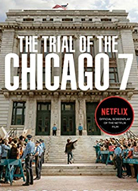 Considering all this, it's safe to say that we can expect The Trial of the Chicago 7 to make a big splash with the HFPA voters, though its success with AMPAS isn't as assured. That being said, in this weird race, it's perchance foolish to expect such a traditional piece of Oscar buzz to be ignored. Nathaniel's currently predicting the movie for five nominations, including Best Picture and two spots in the Best Supporting Actor race. It's easy to imagine it earning more, though Sorkin's presence in the Best Original Screenplay category feels like its most secure bid for Oscar gold. If he does get nominated, it'll be his first foray into this particular category since all of his previous honors came from adapted texts.
Considering all this, it's safe to say that we can expect The Trial of the Chicago 7 to make a big splash with the HFPA voters, though its success with AMPAS isn't as assured. That being said, in this weird race, it's perchance foolish to expect such a traditional piece of Oscar buzz to be ignored. Nathaniel's currently predicting the movie for five nominations, including Best Picture and two spots in the Best Supporting Actor race. It's easy to imagine it earning more, though Sorkin's presence in the Best Original Screenplay category feels like its most secure bid for Oscar gold. If he does get nominated, it'll be his first foray into this particular category since all of his previous honors came from adapted texts.
How many Oscar nominations do you think Sorkin's latest cinematic effort will conquer? Perhaps more importantly, does it deserve any?